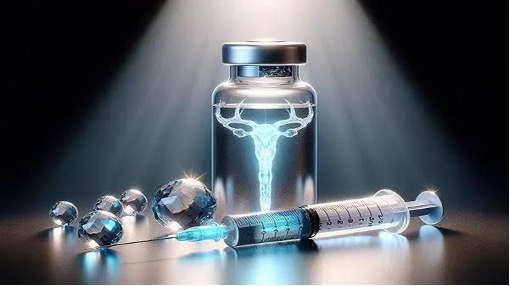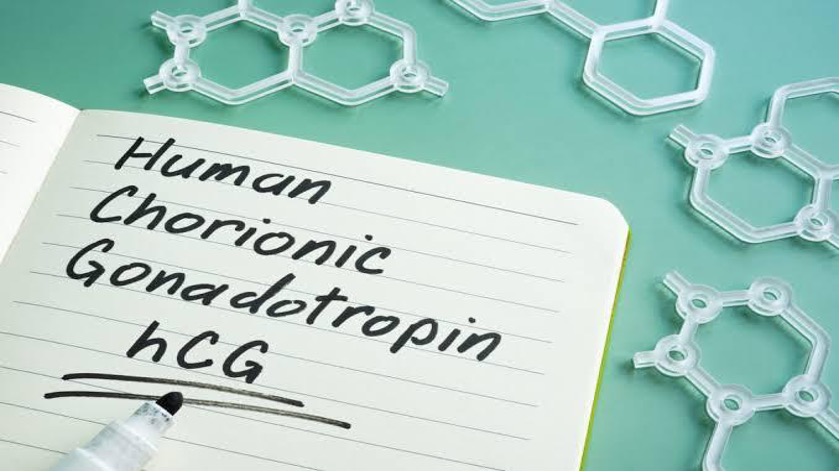What is Hypogonadism?
Hypogonadism is a common condition, affecting 38% of men over the age of 45 and 7% of men under the age of 40. Hypogonadism is when the body doesn’t produce enough testosterone, an essential hormone for masculine development during puberty.
Low testosterone can result in symptoms such as low energy, mood changes, muscle loss, and sexual dysfunction. For men who want to maintain fertility while treating hypogonadism, Human Chorionic Gonadotropin (HCG) monotherapy offers an effective treatment.
In this article, we’ll look at how HCG monotherapy works, who it’s suited for, its benefits, possible side effects, and how it compares to other hypogonadism treatments.
What is HCG Monotherapy?
HCG Monotherapy is a treatment that uses human chorionic gonadotropin (HCG) alone to stimulate the body’s natural production of testosterone.
Who is HCG Monotherapy For?
HCG monotherapy is an effective treatment option for men who are not suitable candidates for testosterone replacement therapy (TRT), particularly those with subclinical hypogonadism (SH). SH occurs when men exhibit symptoms of testosterone deficiency but have baseline testosterone levels above 300 ng/dL, which can limit their eligibility for TRT under current medical guidelines. With SH affecting approximately 10% of men and up to 21% by their 80s, hCG therapy presents a promising alternative treatment option.
Additionally, HCG therapy can be beneficial for men who are concerned about the potential side effects of TRT, such as acne, gynecomastia, testicular atrophy, male infertility, and increased hematocrit levels. Since HCG mimics the action of luteinizing hormone (LH), it helps stimulate the body’s natural testosterone production, offering a more physiological approach to treatment.
 How is HCG administered?
How is HCG administered?
HCG monotherapy is usually given as injections, either into the muscle (IM) or just under the skin (SQ). How often and how much you need depends on your testosterone levels, symptoms, and treatment goals—don’t worry, your healthcare provider will decide the right plan for you.
When it comes to HCG, it’s important to note the following:
- The standard hCG dosage is usually injected 2-3 times per week, but this can vary based on individual needs.
- It’s important to have regular check-ups during HCG treatment to keep testosterone levels on a healthy range and reduce side effects.
- Blood tests are needed to monitor both testosterone and estrogen levels, as hCG can sometimes increase estrogen production.
Every patient’s body reacts to HCG in its own way, so your healthcare provider will adjust the dose as needed to get the most effective results.
 7 Benefits of HCG Monotherapy
7 Benefits of HCG Monotherapy
HCG monotherapy offers several significant benefits. By stimulating the body’s natural testosterone production, HCG allows men to increase their testosterone levels without suppressing the function of the testes. This means that sperm production is maintained, making it a valuable option for men who want to have children.
Primary benefits of HCG Monotherapy include:
- Natural Testosterone Production: One of the key benefits of HCG monotherapy is that it stimulates the testes to produce testosterone internally. This not only addresses the symptoms of low testosterone but also supports testicular function and hormone balance.Men using HCG often report feeling more in control of their treatment, as their body is producing the hormone rather than relying on external sources.
- Preservation of Fertility: For men hoping to maintain their fertility, HCG monotherapy is an excellent option. HCG helps maintain both testosterone levels and sperm production. This is a crucial consideration for men who are actively trying to conceive or may want to preserve their fertility for future family planning.
- Enhanced Mood and Mental Clarity: Hormonal imbalances can have a significant impact on mental health, with low testosterone often linked to symptoms such as depression, irritability, and anxiety. By addressing these imbalances, HCG monotherapy can lead to improved mood stability. Additionally, balanced testosterone levels can promote mental clarity, allowing men to think more clearly, focus better, and feel less overwhelmed by stress.
- Improved Sexual Function: HCG monotherapy can help restore sexual function. This benefit not only enhances personal satisfaction but can also improve relationships, as sexual dysfunction is a common source of stress for many couples.
- Maintenance of Testicular Size and Function: Since HCG stimulates the body to produce testosterone naturally, it helps maintain normal testicular size. This benefit extends beyond just cosmetic concerns—it also means that the testes continue to function normally, producing both testosterone and sperm.
- Customizable Treatment Plans: Another advantage of HCG monotherapy is the flexibility in treatment plans. Since every man’s body responds differently to HCG, dosages can be adjusted based on individual needs. This helps healthcare providers fine-tune the treatment to achieve optimal results. This personalised approach allows for more effective management of hypogonadism, ensuring that each patient receives the care best suited to their unique physiology.
- Holistic Improvement in Quality of Life: Ultimately, the benefits of HCG monotherapy go beyond just addressing the symptoms of low testosterone. HCG restores hormonal balance, helping men feel more like themselves with improvements in physical, emotional, and sexual well-being. It can also boost confidence in sexual health, making it a potential suitable option.
Common Side Effects of HCG Monotherapy
Like any treatment, HCG monotherapy comes with potential side effects. However, most men tolerate it well when properly managed by a healthcare provider. Some of the most common side effects include:
- Acne: Increased testosterone levels can lead to oily skin and acne, similar to the side effects seen in TRT.
- Pain at the site of injection: As with any injectable treatment, there can be some localized pain or irritation at the injection site.
- Fluid retention: HCG can cause the body to retain more water, leading to bloating or slight weight gain.
Less common but more serious side effects to watch for include:
- Gynecomastia: Also known as male breast tissue enlargement—this can occur if estrogen levels rise too high during treatment.
- Mood swings: Hormonal fluctuations can sometimes lead to changes in mood or irritability.
- Hormonal imbalances: If not properly monitored, HCG can lead to an imbalance between testosterone and estrogen levels, potentially causing unwanted symptoms.
It’s important to report any side effects to your healthcare provider. Adjustments to dosage or additional medications may help manage side effects if they arise.
Safety Measures and Precautions
While HCG monotherapy can be highly effective, it’s important to be mindful of certain precautions:
- Regular monitoring is essential to ensure safe and successful treatment.
- Blood tests are crucial for monitoring testosterone, estrogen, and other hormone levels. This helps ensure that the treatment is working as expected and that side effects, such as estrogen buildup, are kept in check.
- Men with a history of prostate issues should discuss this with their doctor before starting treatment.
- Regular monitoring for signs of prostate enlargement is also necessary, as increased testosterone levels may exacerbate this condition.
It’s important to follow your healthcare provider’s guidance closely and keep up with regular check-ups and blood tests. This ensures that the treatment remains effective and that any necessary adjustments can be made.
HCG vs TRT? Which is better?
Although both treatments are effective in treating hypogonadism, there are certain attributes that set them apart.
The table below highlights the common differences between HCG and TRT:
| Human Chorionic Gonadotropin (HCG) monotherapy | Testosterone Replacement Therapy (TRT) |
| Stimulates the body’s natural testosterone production by mimicking luteinizing hormone (LH), encouraging the testes to produce testosterone. | Directly introduces synthetic testosterone into the body, bypassing natural production processes. |
| Tends to have fewer and milder side effects, with a lower risk of complications like acne, gynecomastia, and increased hematocrit. | More pronounced side effects, such as acne, gynecomastia, testicular shrinkage, male infertility, and elevated red blood cell count.
|
| Usually administered via subcutaneous injections on a scheduled basis, allowing patients to self-manage treatment. | Can be administered in various forms, including injections, gels, patches, and implants, but requires more frequent monitoring due to the direct introduction of testosterone into the bloodstream.
|
| Helps preserve or even improve fertility by maintaining sperm production, as it supports the body’s own hormone regulation. | Can reduce fertility by suppressing the body’s natural production of testosterone and sperm, potentially leading to testicular atrophy. |
Conclusion
HCG monotherapy is a powerful and effective treatment option for hypogonadal men, particularly those looking to preserve fertility while addressing the symptoms of low testosterone. By stimulating the body’s natural testosterone production, HCG helps improve energy levels, mood, sexual function, and overall quality of life without fertility risks.
If you’re considering HCG monotherapy, it’s essential to work closely with a healthcare provider who can tailor the treatment to your specific needs and ensure regular monitoring for optimal results. With proper care, HCG monotherapy can help men regain their vitality while maintaining their ability to have children in the future.
References
Madhusoodanan V, Patel P, Lima TFN, Gondokusumo J, Lo E, Thirumavalavan N, Lipshultz LI, Ramasamy R. Human Chorionic Gonadotropin monotherapy for the treatment of hypogonadal symptoms in men with total testosterone > 300 ng/dL. Int Braz J Urol. 2019 Sep-Oct;45(5):1008-1012. doi: 10.1590/S1677-5538.IBJU.2019.0132. PMID: 31408289; PMCID: PMC6844348.
Cleveland Clinic. (n.d.). Human chorionic gonadotropin (HCG) injection. Cleveland Clinic. https://my.clevelandclinic.org/health/drugs/18559-human-chorionic-gonadotropin-hcg-injection
Cleveland Clinic. (2022, March 11). Human chorionic gonadotropin (HCG).Cleveland Clinic. https://my.clevelandclinic.org/health/articles/22489-human-chorionic-gonadotropin
Mayo Clinic. (2021, September 2). Male hypogonadism: Symptoms and causes. Mayo Clinic. https://www.mayoclinic.org/diseases-conditions/male-hypogonadism/symptoms-causes/syc-20354881
